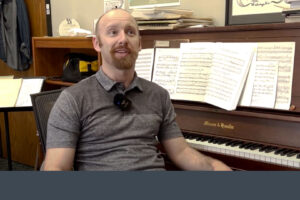Recent news that a gunman killed students and a professor at Umpqua Community College in southwestern Oregon is both shocking and disturbingly familiar in the United States. But aside from the needless violence and the debate about gun control laws, there is another, much less reported consequence of school shootings: teachers unwilling to enter or stay in the profession.
We must do more to blunt the teacher burnout that could be exacerbated by mass causality shootings at schools. Policymakers must understand that guns have no place in any educational setting, K–12 or college. School administrators must make sure that their teachers know what to do should such events take place.
It has long been recognized that teaching is a uniquely stressful occupation. The term burnout, which refers to feelings of emotional exhaustion and reduced sense of accomplishment at work, was practically invented for teachers.
In fact, estimates show that nearly one-fourth of teachers report burnout symptoms, and during the first five years after entering the profession, the teacher turnover rate is between 40 and 50 percent. Just when they are getting over the learning curve and becoming proficient as teachers, they decide to leave.
Mass casualty shootings such as the one at Umpqua Community College add yet another potential source of stress for those thinking about entering the teaching profession and those thinking about leaving it. As researchers who study the factors that cause burnout and turnover in K–12 teachers, my colleagues and I have found that teachers high at risk for stress and burnout also report greater concerns about classroom violence.
We found that teachers with classrooms most likely to cause them stress were also the more likely to report concerns about violence. Across the two survey years, about 30 percent reported being threatened by a student, and about 20 percent reported they had been attacked. For teachers we classified as having a classroom less likely to cause stress, only about 7 percent reported being threatened or attacked.
Teaching is the most politicized profession in the United States. We hold teachers with limited resources responsible for the intellectual, social and emotional well-being of students. We do not pay them adequately, and we usually do not give them autonomy to do their jobs as they see best. And when students fall short on standardized tests, we blame the teachers.
Perhaps it is no surprise then that many teachers in the U.S. do not stick with the profession for long. And when we add school shootings into the mix, it could be the tipping point that sharply reduces the number of people willing to be a teacher.
I can attest to the concern about guns on campus as a professor at The University of Texas. Our state Legislature recently passed a bill (SB11) that goes into effect Aug. 1 of next year, allowing concealed handgun license holders to carry on campus. More than 160 professors have signed a petition to ban handguns from classes despite this new law.
I support this ban. My building on campus is only a few hundred yards from the state Capitol, and I cannot help but notice that whereas legislators have allowed people to carry guns into my workplace, I must still pass through a metal detector to enter theirs.
We cannot remove all sources of stress for teachers, but guns have no place in educational settings. Otherwise, there soon may not be many people willing to enter, or stay, in the teaching profession.
Christopher McCarthy is a professor and associate chair of the Department of Educational Psychology in the College of Education at The University of Texas at Austin.
A version of this op-ed appeared in the Fort Worth Star Telegram.
To view more op-eds from Texas Perspectives, click here.
Like us on Facebook.
#schoolshooting may mean not too many people willing to enter, or stay, in teaching profession says @utexascoe prof: http://t.co/6ZvaZVv5sb
— Texas Perspectives (@TexPerspectives) October 9, 2015



